Richard Thomas Henry “Dickie” Lonsdale was born on 27 December 1913 to Mr and Mrs Robert Lonsdale, and was educated at Eastbourne College.
He joined the army as a private soldier before attending Sandhurst, commissioning into the Royal Leicestershire Regiment in 1936. It was with this unit, whilst serving in Waziristan in 1938, that he was awarded The Military Cross in 1938 for capturing an enemy position.
In 1941 Lonsdale volunteered for Airborne Forces in India and became a founder member of the 151 Parachute Battalion before transferring to become the Commanding Officer of A Company 2nd Parachute Battalion in July 1943.
Lonsdale played a leading role in the actions around Primasole Bridge during the invasion of Sicily. Part of one of the few units to land on their objective, Lonsdale and his unit reinforced a position known as “Johnny 1” and successfully repelled numerous enemy counter attacks. For his part in the operation, Lonsdale was awarded the Distinguished Service Order. The Citation stated:
“For most conspicuous gallantry and leadership in action. On the night of the 13th of July 1943 this officer was in command of a Company of the 2nd Battalion Parachute Regiment, which was dropped on the Catania Plain in Sicily to secure the high ground South of the River Simeto. On reaching the objective this officer took over command of the Battalion as the Commanding Officer was injured, and at dawn on the 14th of July 1943 German Parachute Troops launched a heavy counter attack on the Battalion positions. This officer by his example, leadership and complete contempt for danger when under very heavy enemy fire, so skillfully directed the defence of the objective gained and in spite of sustaining heavy casualties, that the position was held and heavy casualties were inflicted on the enemy, including the taking and retention of 450 enemy prisoners, until relieved by our own troops.”
Lonsdale returned to the UK with the rest of the 1st Airborne Division in late 1943 and thereafter followed a series of cancelled operations, after the initial Normandy landings by the 6th Airborne Division.
In September of 1944, Lonsdale was promoted to Second in Command of the 11th Parachute Battalion where he set about using his experience, and often unconventional methods, to inspire the men and forge a strong unit.
The 11th Battalion was dropped as part of the second lift of Operation Market on 18 September, 1944. The Dakota Aircraft Lonsdale was in received hits from German Flak guns and Lonsdale was wounded in the hand. After landing Lonsdale had to seek medical attention and did not take part in the Battalions advance into the outskirts of Arnhem.
As the advance stalled and casualties began to mount, Lonsdale was put in charge of a force consisting of remnants of Parachute and Airborne Forces in outlying positions forward of the church at Oosterbeek. Attacked heavily by German armoured forces on the 20 September Lonsdale’s force put up a robust defence, but were ordered to pull back later the same day.
Arriving back at the church the much wounded Lonsdale, covered in bandages, grouped his force together and gave a speech from the pulpit that has since become immortalised:
“You know as well as I do there are a lot of bloody Germans coming at us. Well, all we can do is to stay here and hang on in the hope that somebody catches us up. We must fight for our lives and stick together. We've fought the Germans before - in North Africa, Sicily, Italy. They weren't good enough for us then, and they're bloody well not good enough for us now. They're up against the finest soldiers in the world. An hour from now you will take up defensive positions north of the road outside. Make certain you dig in well and that your weapons and ammo are in good order. We are getting short of ammo, so when you shoot you shoot to kill. Good luck to you all.”
This rousing speech inspired those who heard it and for the next few days they put up a spirited defence against increasingly heavy German attacks, often helped by the artillery of XXX Corps which was now in range. However, on the 25th September the order to withdraw across the Rhine was given with Lonsdale being one of the last to leave, and, consequently, had to swim the Rhine to safety despite his many wounds.
For his actions Lonsdale was awarded a bar to his Distinguished Service Order, the Citation stating:
“At Arnhem on the 20th September, this officer, although wounded in the hand and arm, was given command of the remnants of three Parachute Battalions who had withdrawn from the town. This detachment, about 400 strong, was allotted the task of holding part of the divisional perimeter.
Major Lonsdale so organised and inspired those under him that in spite of repeated attacks by enemy infantry, tanks and self-propelled guns, the positions taken up were subsequently held until the remains of the division withdrew over the River Lek. Throughout this period of six days the positions were continually mortared and shelled.
Major Lonsdale, although again wounded, organised several counter attacks to regain ground temporarily lost and his personal example and supreme contempt of danger was an inspiration to all those with whom he came in contact.”
Lonsdale played himself in the 1946 film “Theirs is the Glory” and went on to command 3rd Parachute Battalion before transferring to the Kings African Rifles in 1946.
He still maintained his links with The Parachute Regiment and was involved with the Aldershot Branch of the Parachute Regimental Association.
Richard Lonsdale died on 23 November 1988 and is buried in the Aldershot Military Cemetery.
Information compiled with the assistance of Bob Hilton
Read More



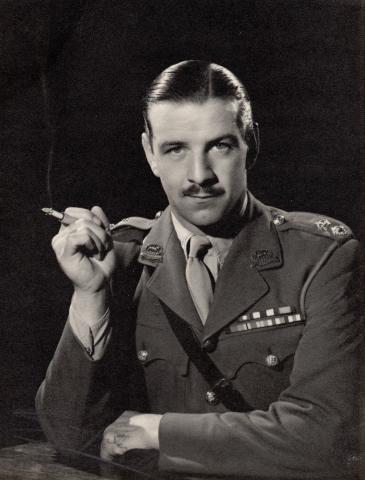
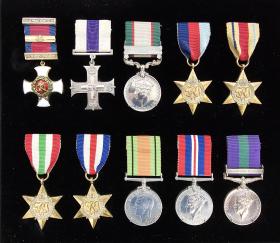
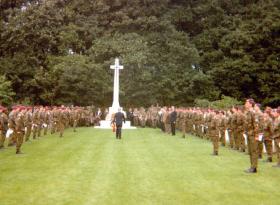
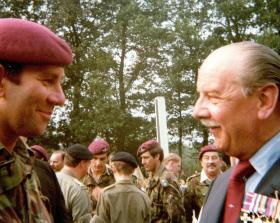
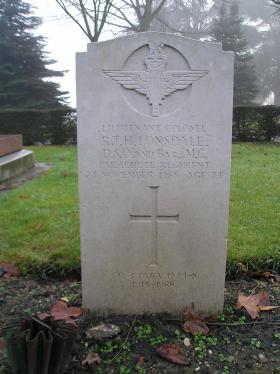
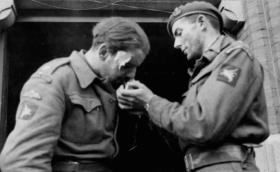
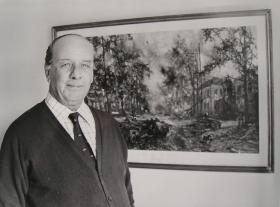
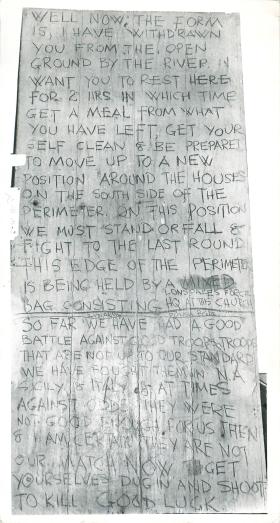
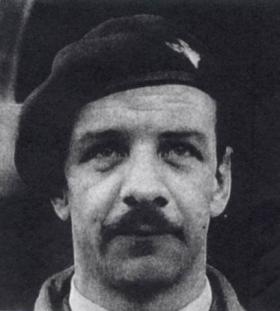
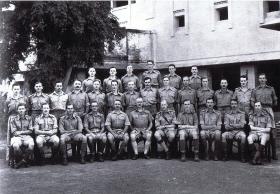
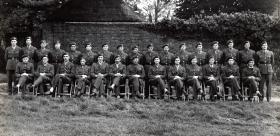
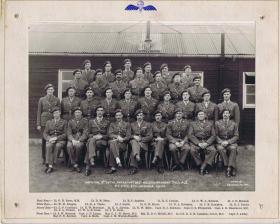
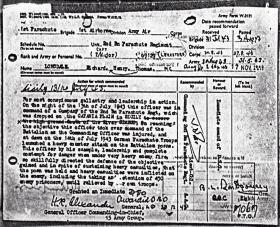
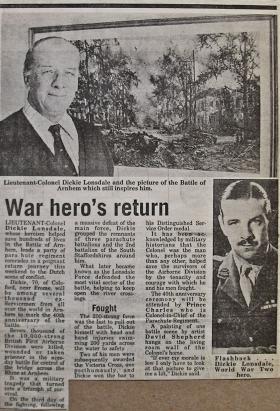
Latest Comments
There are currently no comments for this content.
Add Comment
In order to add comments you must be registered with ParaData.
If you are currently a ParaData member please login.
If you are not currently a ParaData member but wish to get involved please register.